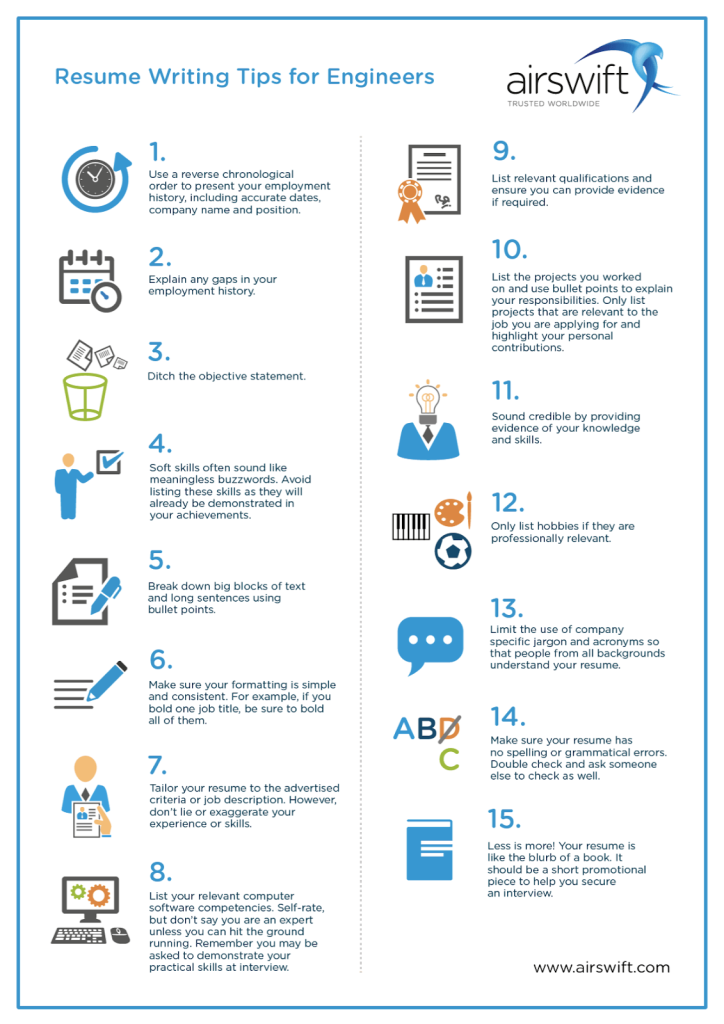Published on: May 12, 2023 Updated on: February 17, 2024
Beginner’s Guide to AI: The Essentials You Need to Know
Author: Inge von Aulock

So, you’re considering a job in the field of artificial intelligence (AI). But how exactly do you get started? Job opportunities are endless in this ever-developing industry, which is good news for anyone interested in AI technology.
However, achieving an AI career is an extremely competitive task. We’re going to break down exactly what you need to get started in this beginner’s guide, alongside the types of career paths available and our top tips for landing your dream job. But before we get started, let’s cover the basics of understanding AI.
Understanding the types of AI
Artificial Intelligence (AI) is a rapidly growing field that is changing the way we live and work. AI has the potential to revolutionize industries ranging from healthcare to finance. But in order to get a job in artificial intelligence, it’s important have a basic understanding of the fundamentals.
What is artificial intelligence?
Artificial Intelligence is the simulation of human intelligence in machines that are programmed to think and act like real people. AI systems are designed to perform tasks such as learning, problem-solving, and decision-making. More specifically generative AI uses these capabilities to create new content. There are various different subsets of technology that tackle different problems. These include:
- Natural Language Processing (NLP): NLP is a branch of AI that focuses on the interaction between computers and human language. NLP systems are used to analyze, understand, and generate human language.
- Algorithms: Algorithms are the set of rules and frameworks that are used to teach AI systems how to perform specific tasks and automation. These rules are designed to help machines make decisions based on data inputs.
- Deep Learning: Deep learning is a subset of machine learning that involves the use of neural networks. Deep learning algorithms are designed to learn from large amounts of data, often known as ‘big data’, and can be used for a wide range of applications, including speech recognition and image classification.
- Computer Vision: Computer vision focuses on enabling machines to interpret and understand visual data from the world around them. This includes analyzing images and videos and identifying patterns and objects.
- Neural Networks: Neural networks are a type of algorithm that is modeled after the human brain. These networks are designed to learn from large amounts of data and can be used for more complex tasks, including image and speech recognition.
- Machine Learning: AI and machine learning are often used interchangeably, but they are not the same thing. Machine learning is a subset of artificial intelligence that involves the use of machine learning algorithms and statistical models to enable machines to learn from data inputs and make decisions based on that data.

Types of careers in AI
With so many different fields within the industry, there are a vast amount of opportunities to find the career that’s right for you. We’re going to be taking a look at some of the most popular jobs out there and breaking down exactly what they do.
Machine Learning Engineer
Average salary: $109,170
One of the most in-demand careers in AI is the Machine Learning Engineer. A Machine Learning Engineer is responsible for building and maintaining machine learning algorithm models that can learn from data. They work closely with Data Scientists to design and implement tech that can help solve complex problems.
On a day-to-day basis, an engineer can expect to assess and organize data, conduct experiments and tests to help advance the technology, and monitor the progress of an AI model. Research and further study also make up a huge part of this career to ensure you’re keeping up with the latest advances.
Data Scientist
Average salary: $108,161
Another popular career in AI is a Data Scientist. Data Scientists use statistical and mathematical methods to analyze and interpret complex data sets which are provided by Data Engineers. They use their expertise in data analytics to help businesses make informed decisions and identify patterns and trends that can improve their operations.
Data Analysts are another important role in the field of AI. They are responsible for collecting, organizing, and interpreting large amounts of data to identify patterns and trends. They work closely with data science professionals and Machine Learning Engineers to develop insights that can help organizations make better decisions.

Artificial Intelligence Engineer and Software Developer
Average salary: $135,000
AI Engineers are responsible for software engineering and maintaining artificial intelligence systems. They work on projects that involve natural language processing, robotics, and computer vision.
Lastly, there are Software Developers who specialize in AI and work closely with Engineers. They develop the systems that enable AI applications to function. Day-to-day tasks depend largely on the project and business you’re working with but will involve plenty of coding and testing.
Cybersecurity researcher
Average salary: $147,027
Cybersecurity is another field where AI is being used to improve security and protect against cyber threats. AI professionals in this field work on projects that involve threat detection, network security, and data protection.
On a day-to-day basis, you can expect to be analyzing security threats, conducting research into AI capabilities and software, and often working closely with one business to improve their cybersecurity and offer new solutions.

AI Research Scientists
Average salary: $94,286
Artificial Intelligence Research Scientists are responsible for developing new AI algorithms and techniques. They work on cutting-edge research projects that push the boundaries of AI and advance the field.
You are often required to work within a team of external and internal researchers, and you will be responsible for generating hypotheses, gathering data, and conducting experiments with a focus on developing new AI technologies.
Skills needed
To pursue a career in AI, you need to start learning AI skills alongside the right educational qualifications. Here are some of the skills that are essential for an AI career that you can work on alongside formal education programs:
- Programming skills: As an AI professional, you’ll be working with complex algorithms and models, so having a strong foundation in programming is critical. You should be proficient in at least one programming language, such as Python or Java. These languages are widely used in the AI industry and are essential for implementing algorithms and analyzing data sets.
- Problem-solving skills: AI is all about solving complex problems, so having strong problem-solving skills is a must. You should be able to think critically and develop creative solutions to complex problems. You should also be able to work well under pressure and be able to prioritize tasks effectively.
- Decision-making: Working in AI means you’ll be responsible for making critical decisions that can impact the success of a project. Therefore, having strong decision-making skills is important. You should be able to analyze data sets, weigh the pros and cons of different options, and make informed decisions based on your analysis.
- Technical skills: In addition to programming skills, you’ll also need to have a solid understanding of electrical engineering, information technology, data sets, and other technical skills. You should be familiar with the latest AI tools and technologies and be able to implement them effectively.
There are plenty of online courses, groups, and lectures designed to help you improve these skills so that you can stand out from the crowd. They are often free, remote, and easy to access, so make the most of the opportunities available to you!

Education needed
AI is a highly specialized field that requires a strong foundation in computer science, mathematics, and data analytics. To start a career in AI, you’ll need to have a relevant educational background and a solid understanding of programming languages, algorithms, and machine learning models. Here are some of the qualifications you’ll need to pursue a career in AI.
Bachelor’s degree
A bachelor’s degree in computer science, mathematics, or a related field is a good starting point for an artificial intelligence career. You’ll need to have a strong foundation in programming languages like Python, C++, and Java. You’ll also need to have a solid understanding of data structures, algorithms, and machine-learning models. Luckily, now, there are plenty of AI programs being taught in formal education.
A computer science degree is one of the most common qualifications for an AI career. Computer science programs provide students with the skills that are essential for developing and implementing AI models. It’s important to consider the following before starting a degree:
- Cost: The average cost of a computer science degree in the U.S is $32,635 per year. This is a huge amount of money, and while there will be loans and bursaries available to help fund your studies, you’ll need to be in a comfortable financial position.
- Time: The majority of degrees will take 3 years to complete and are full-time, so you need to be sure you are able to commit.
- University: Each college or university will offer different courses, and even then, similar courses will have different focuses. Be sure to research the different options and make a decision about where you want to study based on their merit, their courses, and their location.
Master’s degree
Once you’ve gained your foundational knowledge from a bachelor’s degree, it’s a good idea to build on it with a master’s. This is an opportunity to gain a deeper understanding of AI and begin specializing in an area that interests you.
Many AI professionals hold a master’s degree or higher, but this isn’t to say it is essential. You can still apply to entry-level jobs after graduating with a bachelor’s and build your experience in the industry.

Online courses and experience
In addition to a traditional degree, you can also gain the knowledge and skills needed for an AI career through online courses. Many reputable online learning platforms offer courses in AI, machine learning, and data analytics. These courses can help you build a strong foundation in AI and gain hands-on experience with the latest tools and technologies.
Alongside this, many recruiters will look for real-world experience within the industry. This can be in the form of internships, placements, work experience, and volunteer positions, which can be perfect for beginners.
Top tips for landing a job
So, now we’ve covered the technical aspects you’ll need to embark on a career in AI, let’s cover the stuff that’ll set you apart from the crowd. It’s an incredibly competitive industry, so you’ll need to do all you can to make your applications eye-catching and attractive. Follow our top tips, and you’ll have a good chance of securing your dream job.
- Gain practical experience: Participate in hackathons, join AI-related projects, attend coding bootcamps, or work on your own projects. This will give you hands-on experience with the latest tools and technologies in the field and will also demonstrate your passion for AI to potential employers.
- Showcase your work: Create a portfolio showcasing your AI-related projects and achievements. Share your work on online platforms such as GitHub, Kaggle, or LinkedIn to demonstrate your skills to potential employers.
- Stay up-to-date: AI is a rapidly evolving field, so staying up-to-date with the latest advancements is crucial. Follow relevant blogs, attend conferences and webinars, and read research papers to stay on top of the latest trends in AI.
- Network: Attend meetups and networking events in the AI community to connect with like-minded individuals and potential employers. Join relevant LinkedIn groups and participate in online discussions to expand your network.
- Develop soft skills: While technical skills are crucial for an AI career, soft skills such as communication, teamwork, and problem-solving are also important. Develop these skills through volunteering, extracurricular activities, or by taking courses in leadership or project management.
- Customize your resume: Tailor your resume to the specific AI job you’re applying for. Highlight your relevant experience, skills, and achievements, and customize your resume to match the job requirements.
- Certifications: Obtaining industry-standard certifications in AI can help you stand out from the crowd and demonstrate your expertise to potential employers. Certifications like Certified Machine Learning Engineer or Certified Data Scientist can help you demonstrate your proficiency in AI and increase your chances of getting hired.

Is it right for you?
Now you know everything you need to know about how to get into artificial intelligence, you need to decide whether it’s the right industry for you. Weigh up the pros and cons of the lifestyle and find out what opportunities are available to you.
A career in AI is an exciting prospect. High salaries and job security make it an attractive option, and with the constant development of technology, you will always be in high demand. Whether its AI writing tools, data analysis, or image generation, everyone is using artificial intelligence in some way, which means it’ll always be a lucrative industry to be a part of.
To stay up to date with the advancements in AI, be sure to keep an eye on our Top Apps blog. Here, we’ll be documenting the latest AI research, tools, and case studies in the industry.
Inge von Aulock
I'm the Founder & CEO of Top Apps, the #1 App directory available online. In my spare time, I write about Technology, Artificial Intelligence, and review apps and tools I've tried, right here on the Top Apps blog.
Recent Articles

Learn how to use advanced search tools, newsletters, and reviews to uncover the perfect AI-focused podcast for you.
Read More
Explore the top beginner-friendly AI podcasts. Our guide helps non-techies dive into AI with easy-to-understand, engaging content. AI expertise starts here!
Read More
Explore the features of The AI Podcast and other noteworthy recommendations to kick your AI learning journey up a notch. AI podcasts won’t...
Read More